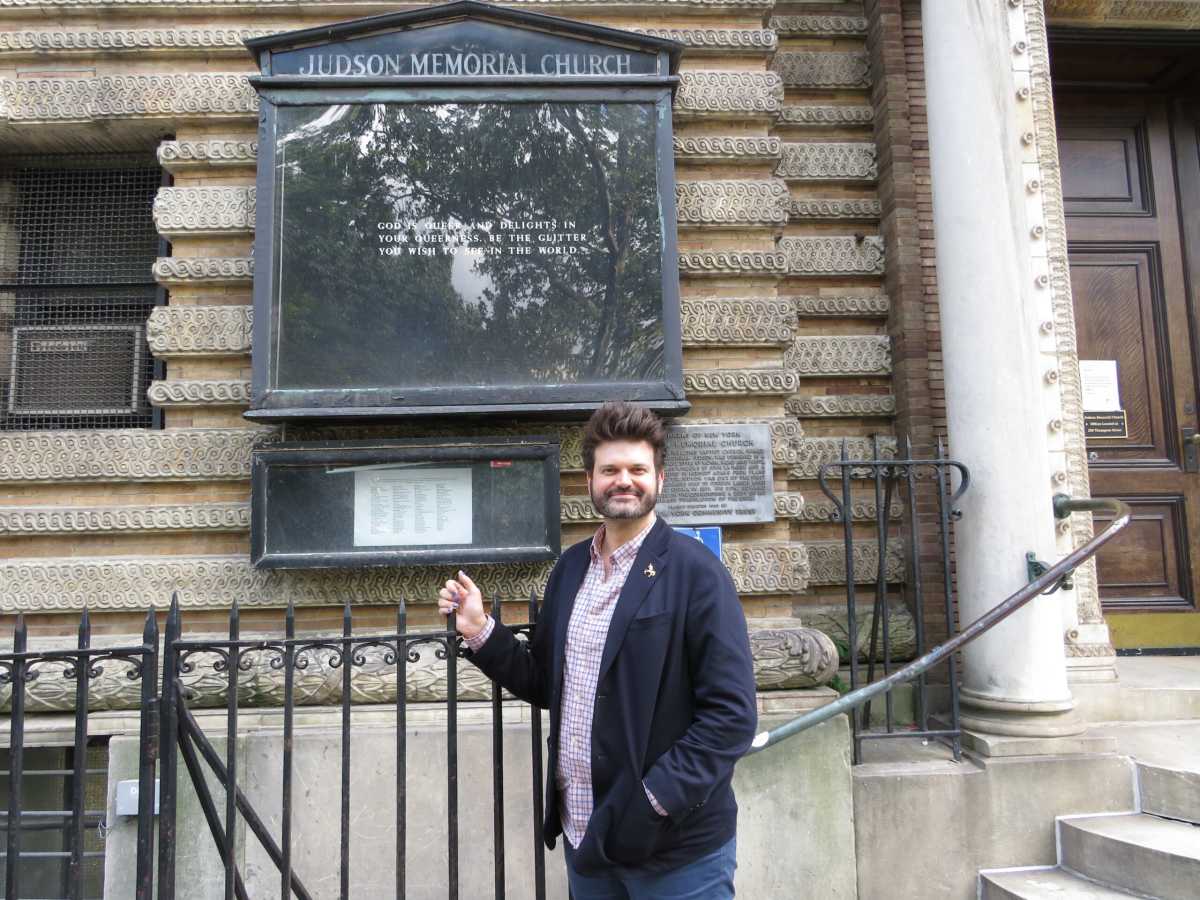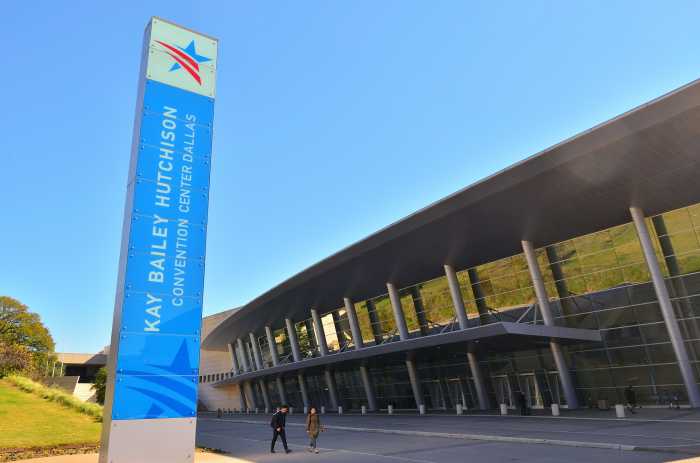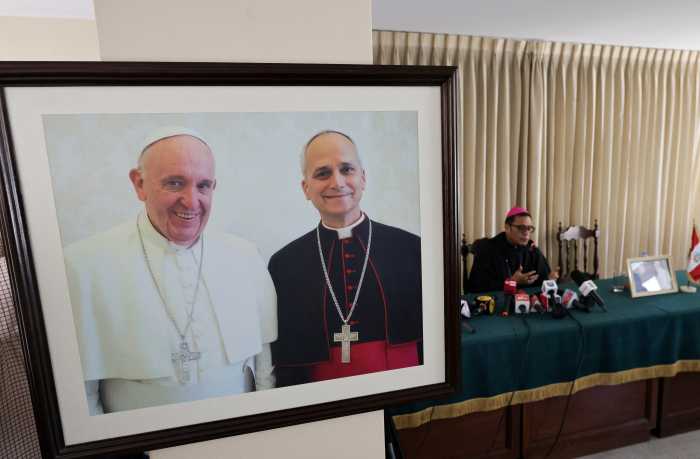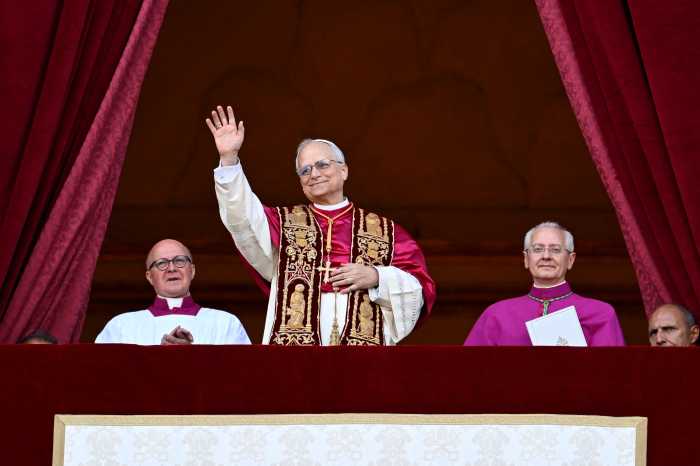To enter the Judson Memorial Church, which sits on the south side of Washington Square Park, is to enter a church that is uncommon for a Protestant church. There is no cross in the apse. But then Judson is an uncommon church.
“There was this idea that the central symbol of Christ should not be the cross because that is a sign of empire, that’s the sign of empire execution,” said Micah Bucey, who is gay and became the senior minister at Judson on June 1, the first day of Pride Month.
The cross and the pews were removed from the church by Howard Moody, who was the senior minister from 1956 to 1992. A story that arose at Judson was that the wood from the cross was used to build the communion table that sits in the church’s meeting room. While Bucey said that is a “myth,” it is still a story that speaks to Judson’s long and rich history of engagement in progressive causes.
“The central symbol of Christianity should be the communion table at which the Jesus followers met,” Bucey said. “The story still has power as long as we’re using it well…The image can still be activating for us.”
Bucey’s father was a pastor on a United Methodist church “so church was very much my context, a place where I felt very loved.” His father studied the LGBTQ community so when Bucey came out to his father at 24, he felt welcomed and supported.
“For me, it was an incredible act of love,” Bucey said. His father left the United Methodist Church and joined the United Church of Christ.
Now 43, he arrived in New York City in 1998 to attend Fordham University with a dual major in theater and theology. His plan was to go to a seminary after graduating from Fordham and become a pastor. That did not immediately happen, as he “spent the majority of my 20s working in the downtown queer art scene and working at an agency that represented artists.”
He was also “dabbling in fundamentalist Christianity,” which was “this more punishing and particularly gay unfriendly brand of Christianity.” When younger, he was aware that he was gay, but assumed that he would eventually marry a woman and have children. That fundamentalist Christianity created a conflict in him.
“When I realized that I wanted to explore the queer community…I wasn’t able to be reconciled with that as I went towards the thing that was giving me life and breath,” Bucey said. He married Matthew Cleaver, who is a public defender in Brooklyn, in 2017.
At 27, “I started to feel this void of spirituality in my life,” he said. He attended the Union Theological Seminary and graduated with a Masters of Divinity in 2014. He had been participating at Judson since 2009
“It felt like a place where love was abundant, where justice was the horizon that we were trying to move toward, and where artists and activists and organizers were being celebrated as the prophetic voices that were needed to keep this place sacred,” Bucey said. He was first the minister for the arts. Judson has engaged with artists and performers in the community for decades.
“It’s just been a wonderful 13 to 14 years of making mistakes being allowed to play because I think at Judson we take our spiritually seriously enough to be playful,” he said. He became associate minister, then minister, and now the senior minister.
Founded in 1892, it is affiliated with the American Baptist Churches USA, which has some conservative positions, but prizes the independence of local churches. It is also affiliated with the United Church of Christ and the Alliance of Baptists. Both are aligned with progressive causes and are LGBTQ affirming.
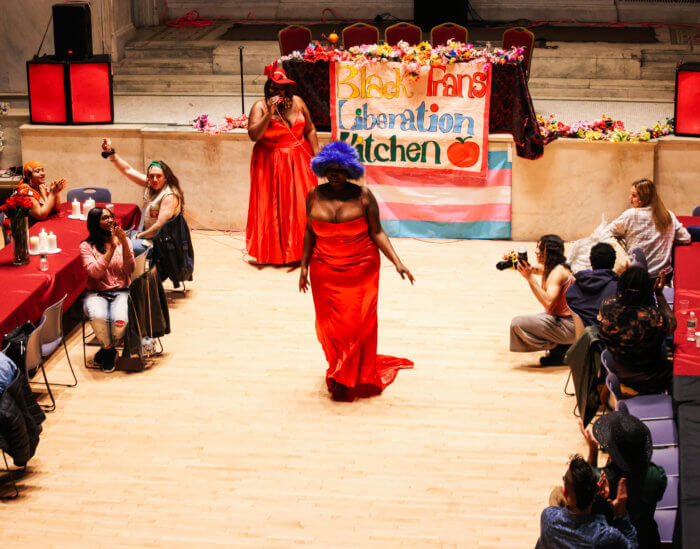
The founder, Edward Judson, hoped to reach the Italian immigrants, who lived in the neighborhoods south and west of the church, and the wealthy New Yorkers who lived above Washington Square Park. At that time, Italian immigrants were the hated immigrants among nativist Americans. The wealthy New Yorkers did not come to Judson.
“Judson was seen as a community and a place that was encouraging all the things that they wanted to keep out of their neighborhood,” Bucey said. That impulse towards centering community, diversity, and inclusion continued to this day.
Bucey is not the first gay minister at Judson. Al Carmines was a gay minister who served from 1965 to 1981 and ran the Judson Poets’ Theater, which produced works by some noted playwrights, including Lanford Wilson. Peter Laarman, who is gay, was the senior minister at Judson from 1994 to 2004.
Under Moody, Judson operated a referral service for women seeking an abortion before New York legalized that healthcare procedure in 1970. When HIV first struck in the early 80s, Judson was an early home of the PWA Health Group that distributed unapproved drugs to people with HIV. And Judson appeared regularly in various LGBTQ press outlets from 1970 when it hosted a fundraiser for the Gay Activists Alliance, an early LGBTQ rights group, to 1994 when the NYC Faeries held a “Grand Faerie Circle/Drumming Circle/Re-creation of the Stonewall Chaos” there. The opening celebration of a four-day Black Pride event was held at Judson in 1999.
“I was so privileged to have communities of faith support me in my own sexual and gender journey that I was kind of naively uneducated in how violent Christianity has been towards the LGBTQ community,” Bucey said. “Now I’m able to see how deeply that trauma goes with folks and so it’s the biggest calling of my life to be a person who is very visibly queer leading a spiritual home.”
The church offers baptisms to members once a year during an annual retreat, but does not require them to sign a statement of faith. Judson does not see the Bible as the inerrant word of God and it tends to couple scripture with “modern testimony,” Bucey said.
“We take the Bible seriously enough to approach it in the form of a question and be playful about it, but at the root of our exploration of scripture is a deep seriousness,” he said. The central message is about community.
“For me, the meaning of the story is about a resurrection of a community, it’s about the resurrection of an ethic that was delivered to [the disciples] the week [Jesus] was executed, but also had been lived out the entire time they had been traveling,” Bucey said. “Your calling is to love God and also to love your neighbor as yourself, which also means you have to love yourself…What matters is that we resurrect what the empire tried to kill each time we gather at this table.”

